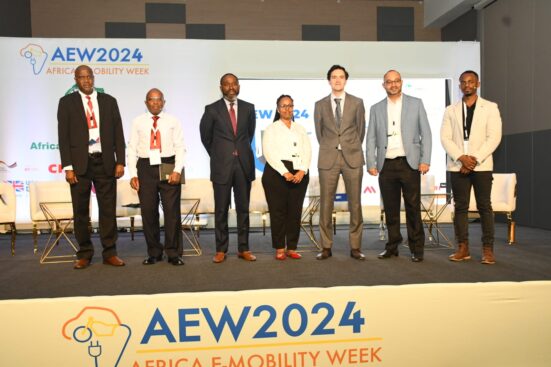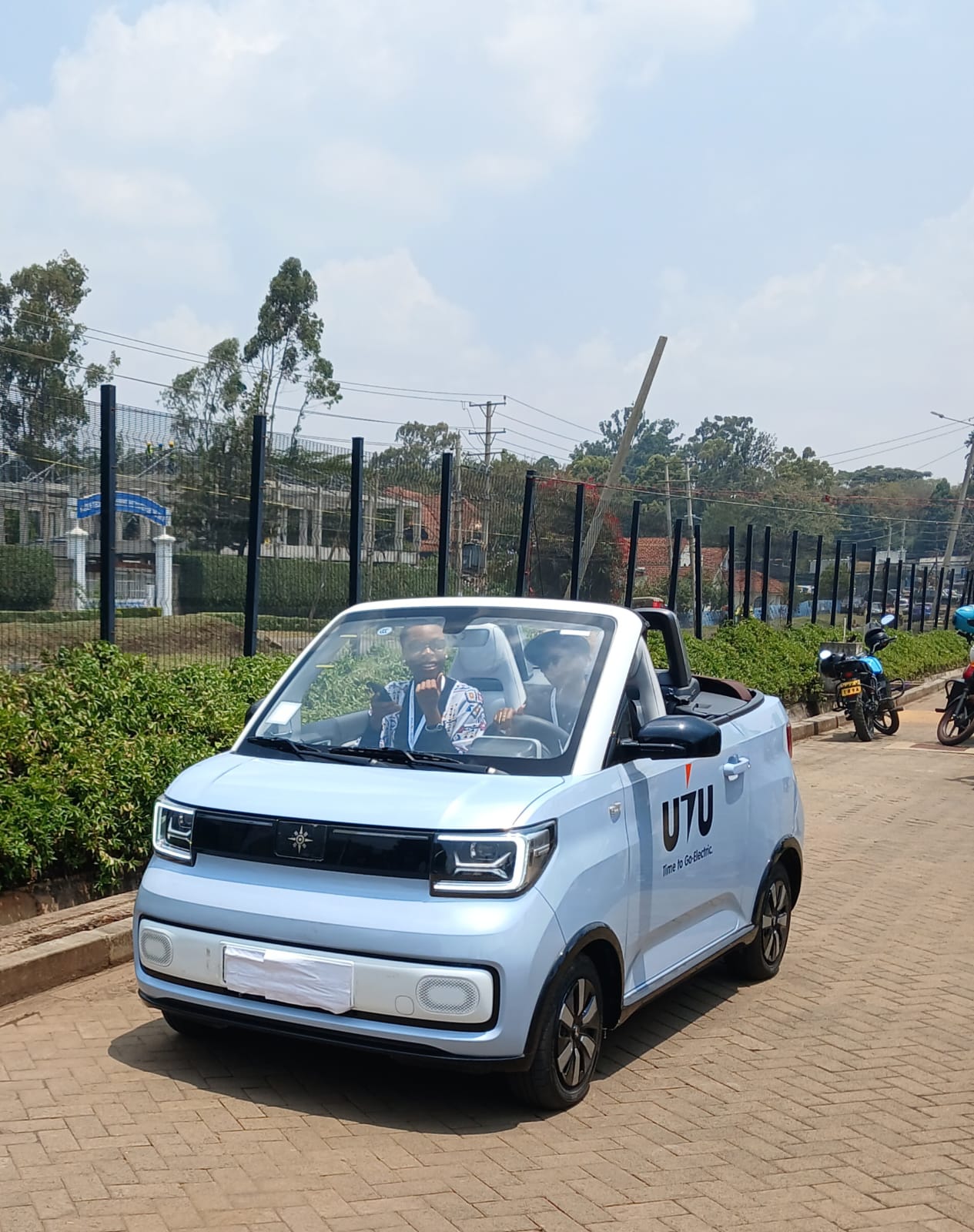By Chiamaka Enendu
In May 2023, when Bola Tinubu assumed office as Nigeria’s President, he inherited the ambitious Energy Transition Plan (ETP), a comprehensive framework for decarbonizing the country’s energy sector, which includes transportation. The ETP was designed to address critical climate challenges and set Nigeria on the path to net-zero emissions by 2060, focusing on renewable energy and electric mobility (e-mobility). However, in the months following Tinubu’s emergence, the government’s attention has shifted to Compressed Natural Gas (CNG) as a short-term alternative to petrol, raising questions about the country’s commitment to the broader energy transition strategy.
Nigeria’s Energy Transition Plan (ETP) and E-Mobility
Launched in 2022, Nigeria’s Energy Transition Plan was hailed as a groundbreaking approach to tackle energy poverty and climate change simultaneously. The transport sector, responsible for over 30% of Nigeria’s total emissions, was identified as a key area for decarbonization, with plans to promote electric vehicles (EVs) as a long-term solution. By 2030, the goal was to increase the share of electric vehicles to 20% of all vehicles, contributing significantly to reducing greenhouse gas emissions.
“Electric mobility holds the key to Nigeria’s sustainable future, offering not just cleaner transport solutions but also paving the way for technological advancement and energy security,” says Lolade Abiola, Programme Manager, Energy Transition Office Nigeria. However, with fewer than 500 electric vehicles on Nigerian roads, the country is far behind peers such as Kenya, South Africa, and Ethiopia. The International Energy Agency (IEA) projects that electric vehicles will make up 30% of global vehicle sales by 2030, but Nigeria’s progress is slow, hindered by insufficient infrastructure, lack of awareness, and limited government incentives.
In Lagos, a metropolis with over 20 million people, slight electric mobility transformations are emerging. Oando Clean Energy Limited has introduced electric buses to the streets of Lagos, marking a significant shift in Nigeria’s nascent electric mobility journey. Partnering with the Lagos Metropolitan Area Transport Authority (LAMATA), Oando’s emission-free buses are weaving through the chaotic traffic, offering a glimpse of what sustainable urban transport could look like in Africa’s largest city.
Adebayo Ogunbanjo, Executive Vice President, Oando Clean Energy, states that one of the biggest contributors to carbon emissions in Nigeria is transportation. “If we are able to decarbonize transportation on the African continent, we would have taken a major leap towards achieving our targets,” he asserts.
Yet, despite the ambition, this electric fleet is still in its infancy, and Lagos, like much of Nigeria, is far from where it needs to be.
“The market potential in Nigeria is probably way higher compared to the rest of sub-Saharan African countries, excluding South Africa. Right now, I think the political climate is inhibiting focus on electric vehicles, as there’s a lot of transition and movement within the country that distracts from what electric vehicles could achieve,” says Renewable Energy expert, Divya Balakrishnan.
Lagos’ electric mobility efforts risk being overshadowed by the challenges of scaling in such a vast, dynamic urban landscape. Other states like Ogun, Abuja, Kano, and Enugu are exploring electric transport options, although progress remains limited.
Does Nigeria’s CNG Emphasis Undermine E-Mobility Goals?
Nigeria’s recent pivot to Compressed Natural Gas amidst pressing economic challenges has ignited a debate over its implications for long-term sustainability goals. Some analysts argue that Compressed Natural Gas should be seen as part of the broader transition process, especially given Nigeria’s status as an oil-producing nation. They believe that Compressed Natural Gas offers a more realistic bridge fuel, capable of reducing emissions in the short term while the country gradually builds the infrastructure for a full-scale electric vehicle transition.
“Nigeria signing up to net zero by 2060 is a recognition that setting a date is not merely symbolic; it must be realistic and practical. As a gas-rich nation, we must leverage our existing resources as long as the world requires fossil energy to generate the revenue needed to transition into cleaner energy sources,” says Ademola Ogunbanjo.
He adds, “Africa should not be coerced into setting unrealistic net-zero targets. For some African countries, transitioning from fossil fuels is existential, as that’s where the bulk of our revenue comes from.”
According to these analysts, 2060 is not too far off, and Compressed Natural Gas could serve as a stepping stone in the energy transition, allowing Nigeria to utilize its abundant natural gas reserves before fully embracing renewables. However, critics contend that this approach risks delaying the full realization of the ETP’s goals, which emphasize renewable, zero-emission technologies. The debate highlights the complex balance between immediate economic realities and Nigeria’s long-term sustainability ambitions.
The Missing Link?
As of 2024, Nigeria has one of the lowest rates of electric vehicle adoption in Africa, with fewer than 500 electric vehicles on the road, compared to Kenya’s 350,000 electric vehicles and South Africa’s 4,000. According to data from the International Energy Agency (IEA), electric cars accounted for only 0.02% of total vehicle sales in Nigeria in 2022, indicating a stark contrast with global trends. The IEA projects that global electric vehicle sales will account for 30% of total vehicle sales by 2030, leaving Nigeria far behind.
The challenges are multifaceted. Nigeria has fewer than 15 operational electric vehicle charging stations across the country, with most located in Lagos. “Where to charge is a common question that Nigerians ask. This illustrates one of the major barriers to electric vehicle adoption in Nigeria: the perception that charging is cumbersome and that chargers are not easily accessible. Additionally, there is anxiety about driving and running out of battery,” explains electric vehicle expert Ajibola Olabintan.
In contrast, Kenya, which has made electric mobility a core part of its climate action strategy, boasts over 150 charging stations, and its most recent National Building Code 2024 stipulates that all commercial buildings must set aside 5% of their parking space for electric vehicle charging, while South Africa has 300. The lack of charging infrastructure severely limits the attractiveness of electric vehicles in Nigeria, especially given the nation’s unreliable electricity supply. While countries like Morocco and Egypt are building extensive electric vehicle infrastructures, Nigeria’s power sector, with an installed capacity of 12,500 MW but an operational capacity of only 4,000 MW, is grossly unprepared for an electric mobility revolution.
Furthermore, electric vehicle costs in Nigeria remain prohibitively high, with prices ranging from ₦15 million to ₦25 million ($20,000–$33,000) compared to ₦4 million–₦7 million ($5,000–$9,000) for used petrol cars. This disparity significantly hinders adoption. Kenya, on the other hand, offers a 20% tax reduction on electric vehicle imports, while South Africa has long provided incentives for electric vehicle buyers.
“One significant issue with brand new electric vehicles is that the cost of clearing a brand-new car, regardless of its size, is far higher than that for most internal combustion engine (ICE) vehicles, even those that are more luxurious and higher-performing,” states Olabintan.
“Nigeria talks a lot about gas. It’s crucial for the government itself to lead by example and create an environment that is attractive for people. I’ve visited several companies focused on electric mobility, yet their car parks are still filled with high-speed rail options rather than electric vehicles. The companies promoting electric mobility also need to set a good example,” he adds.
What Lies Ahead?
Globally, the race to capture electric mobility investment is heating up. With nations setting ambitious targets for electric vehicle adoption, Nigeria risks being left behind if it fails to align its policies with global trends.
A key takeaway from the recently held 3rd edition of the Africa Electric Mobility Week (AEW2024) Conference is that political will can make or break the electric mobility transition. For instance, Ethiopia has taken the bold step of banning certain fossil fuel vehicle imports, despite opposition from powerful stakeholders. This policy has set Ethiopia on a path toward long-term benefits in terms of reduced emissions and sustainable development. Nigeria’s shift to Compressed Natural Gas, while addressing short-term issues, may indicate a lack of political will to fully commit to electric mobility.

“Reducing the capital cost of electric vehicles and enhancing financing options will empower consumers to prioritize utility over price. Africa can lead in electric mobility and create job opportunities for youth while promoting environmental sustainability,” said Michael Muchiri, Head of Secretariat, National Electric Mobility Taskforce, emphasizing the need for governments to make difficult but necessary decisions.
For Nigeria to compete with countries like Kenya, South Africa, and Ethiopia in the electric mobility space, significant investments are needed in infrastructure and capacity building. The country’s electric grid, which currently operates at an actual capacity of 4,000 MW (despite having an installed capacity of 12,500 MW), is insufficient to support large-scale electric vehicle adoption.
“Infrastructure is a huge challenge for the adoption of electric mobility. There is inadequate charging infrastructure, and the capital cost of setting up such infrastructure is high. Public-private partnerships can help lower the setup costs of electric vehicle charging infrastructure due to subsidies and provide high accessibility for various electric vehicles,” says Stephen Nzioka, Director of Renewable Energy at the Ministry of Energy & Petroleum in Kenya.
For Nigeria, the challenge is clear: without strong governmental backing, strategic investment in electric vehicle infrastructure, and consumer incentives, it risks not only failing its energy transition goals but also missing out on the global economic opportunities that electric mobility presents.

 Join Daily Trust WhatsApp Community For Quick Access To News and Happenings Around You.
Join Daily Trust WhatsApp Community For Quick Access To News and Happenings Around You.


